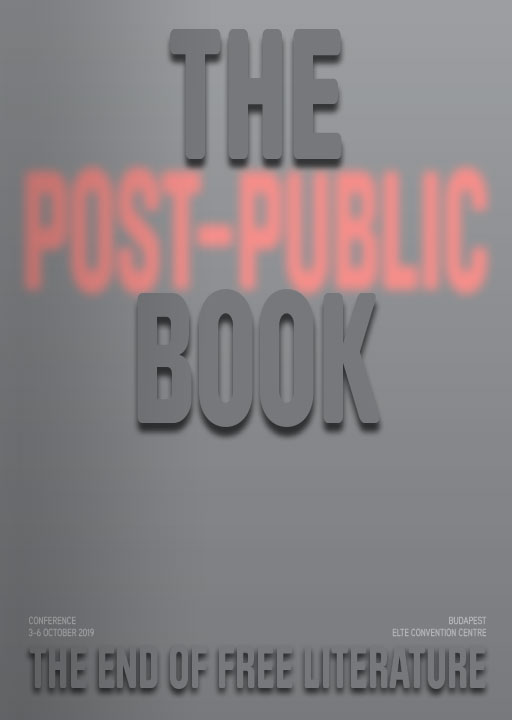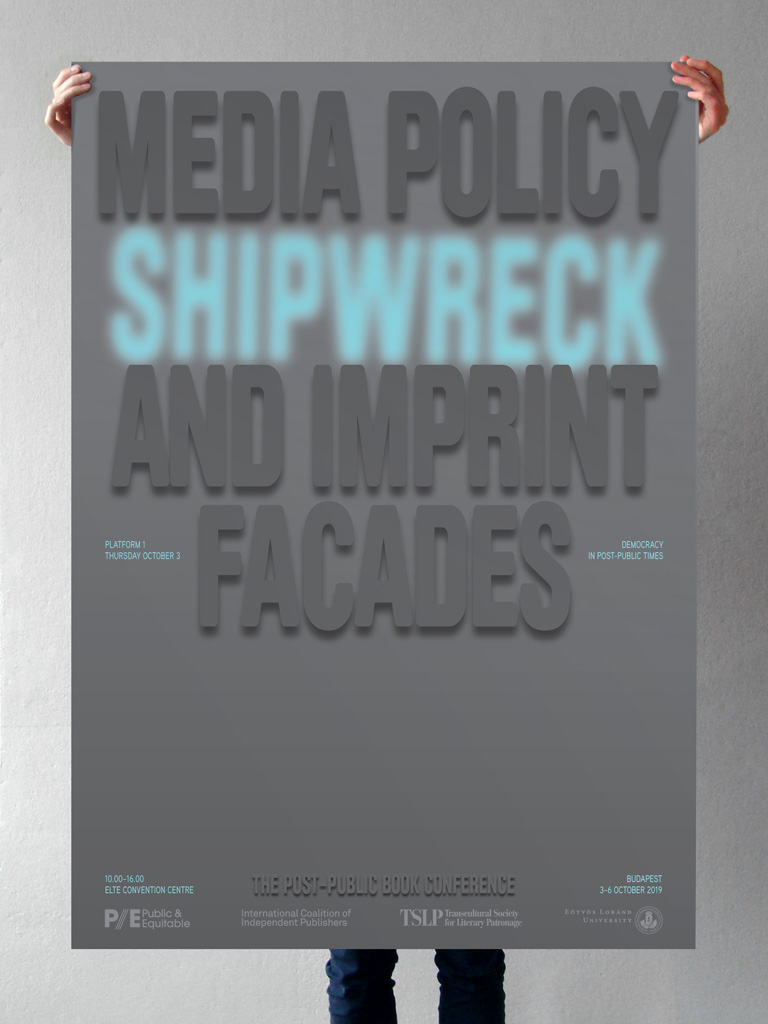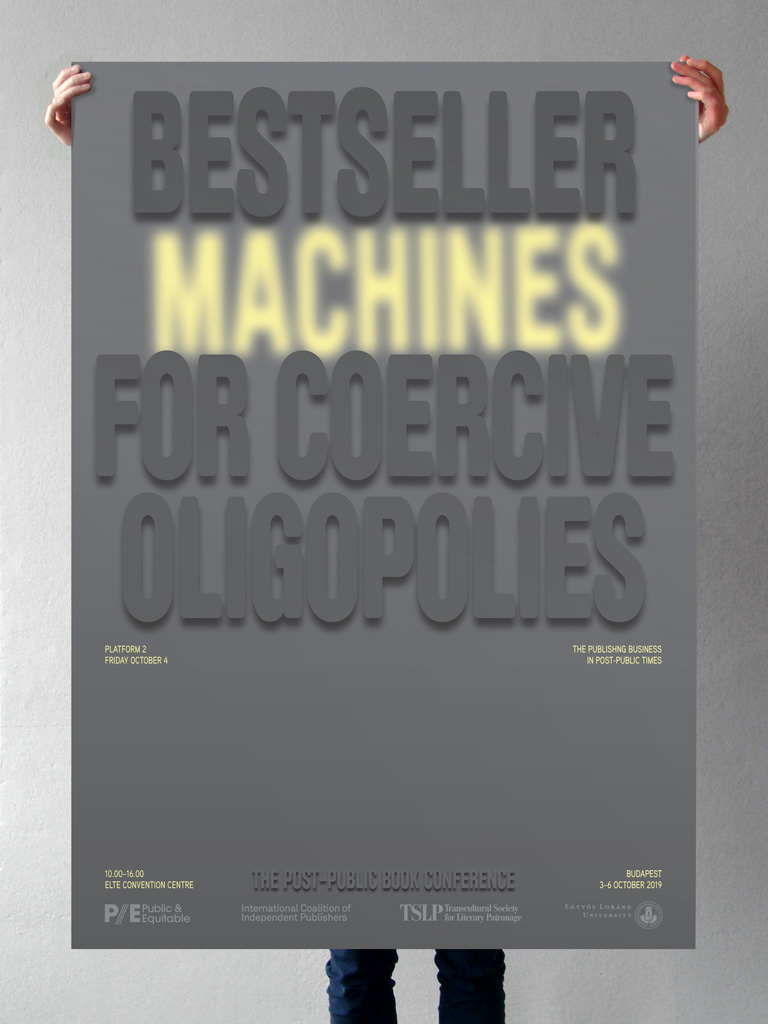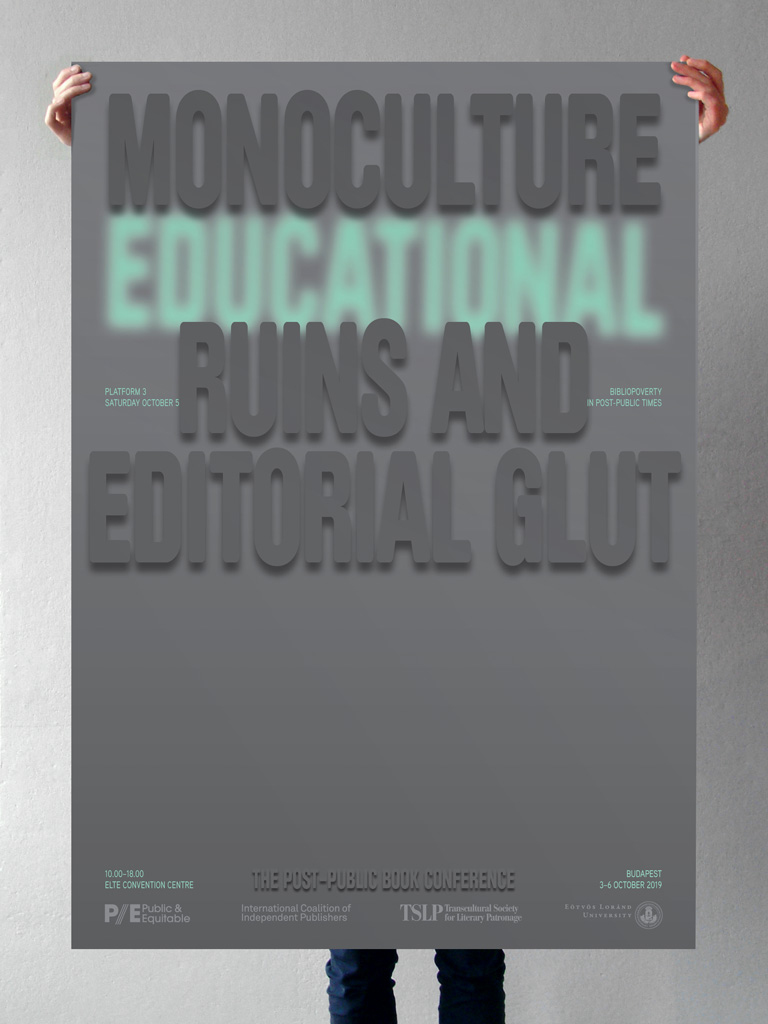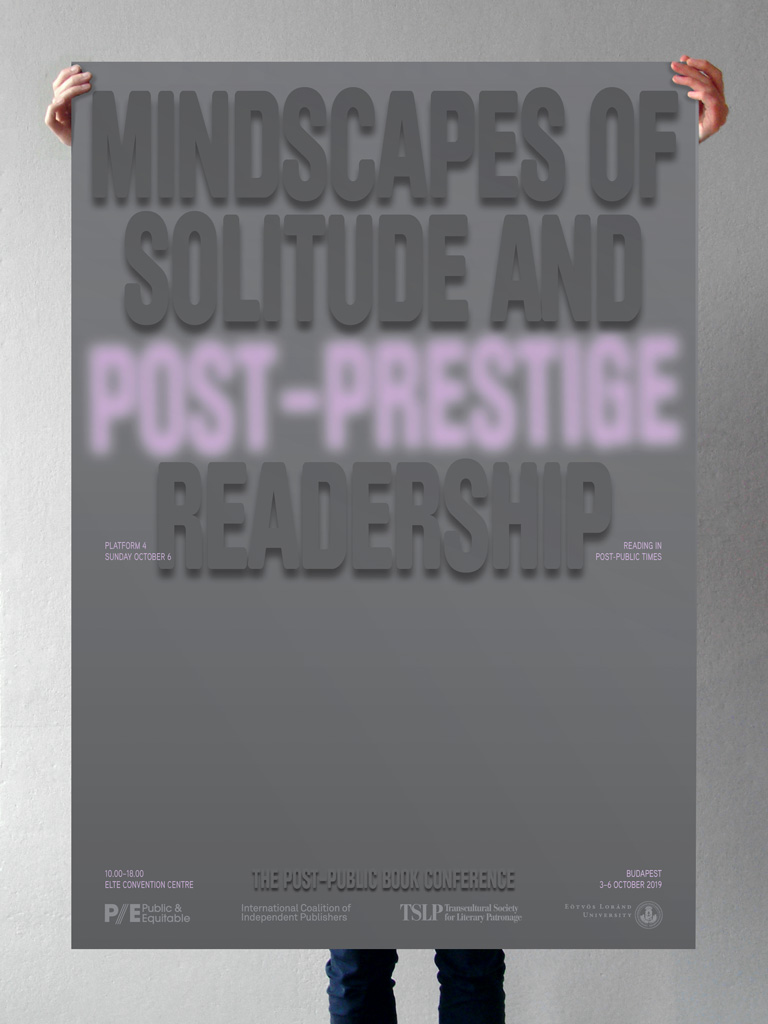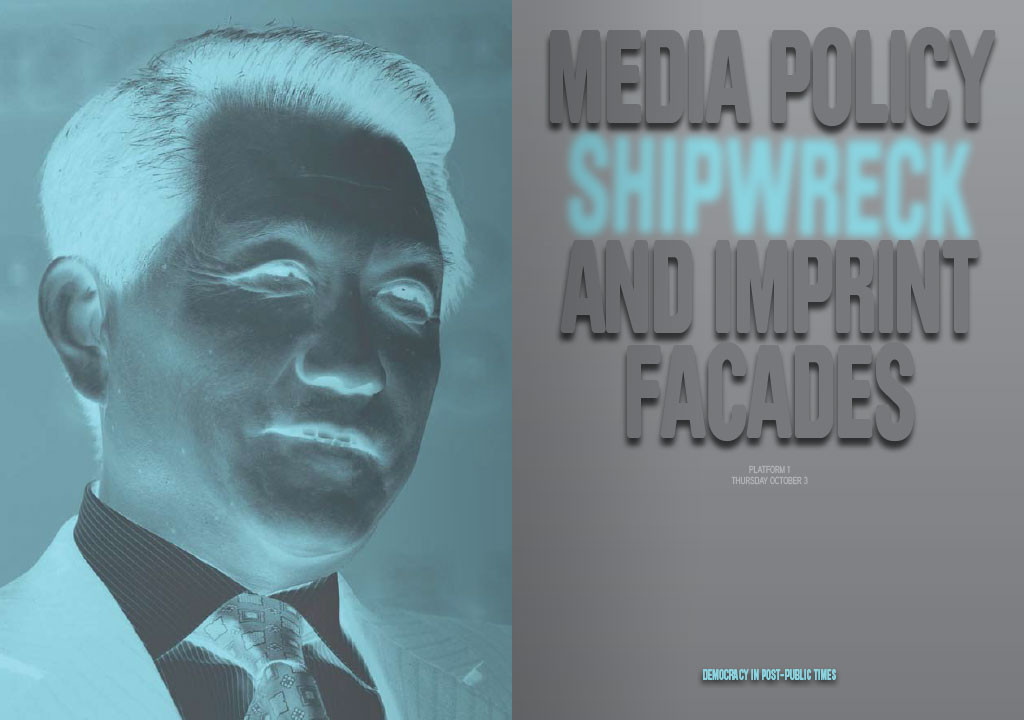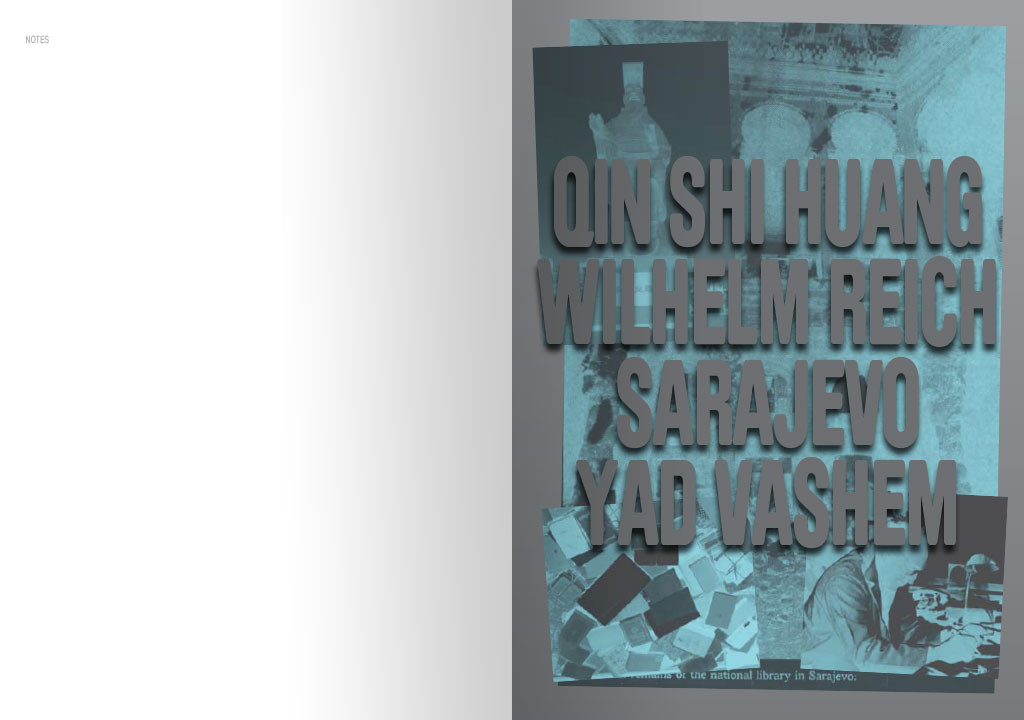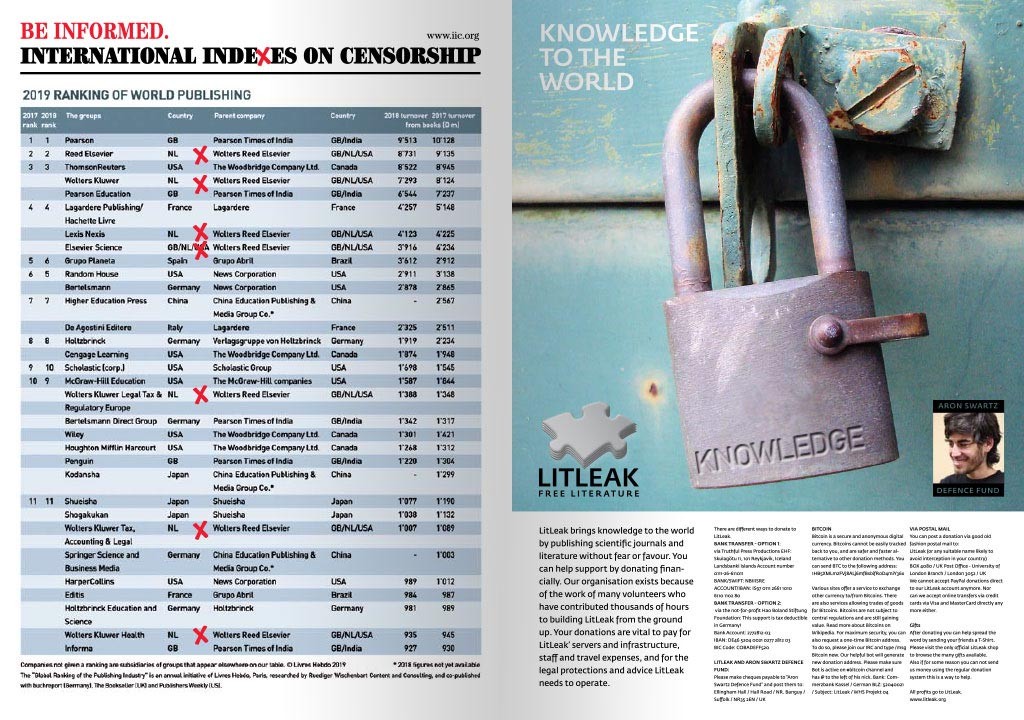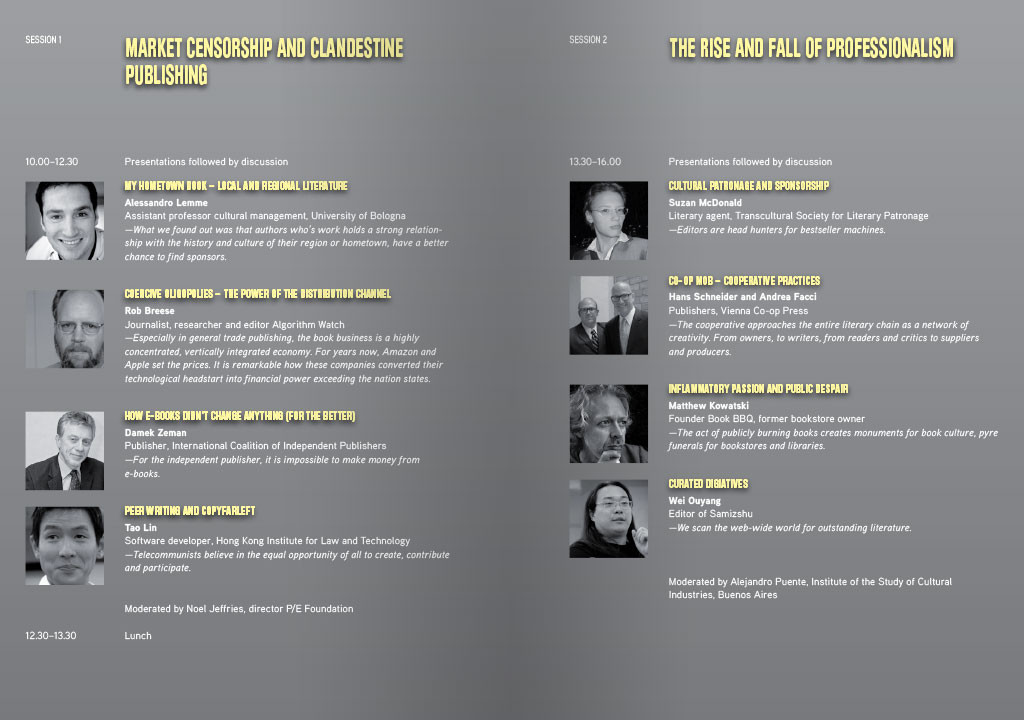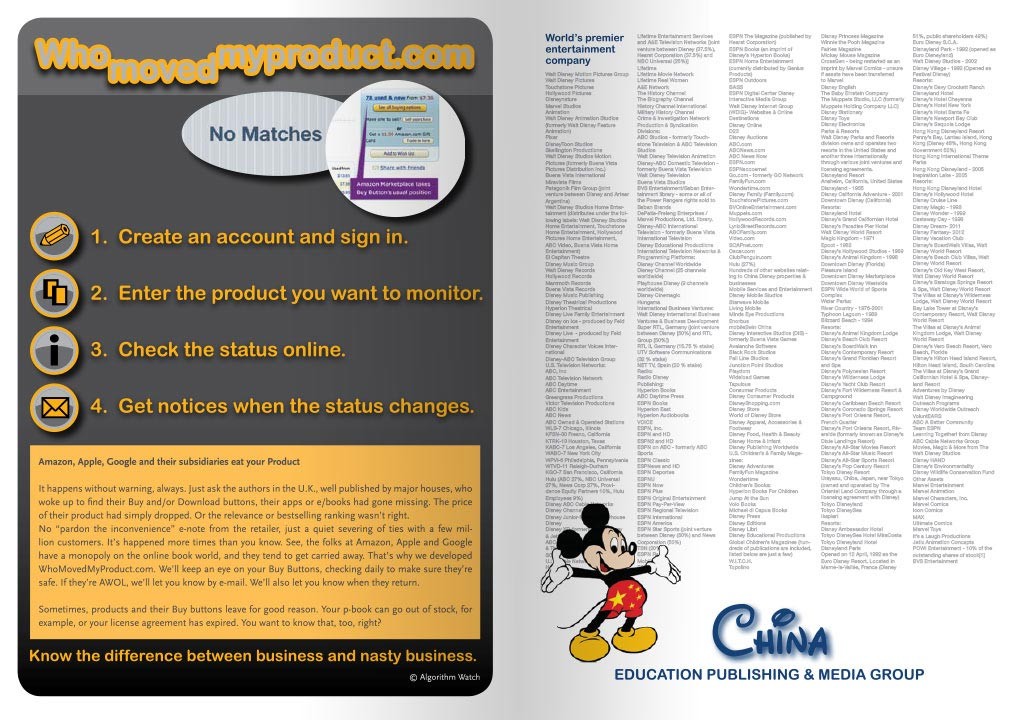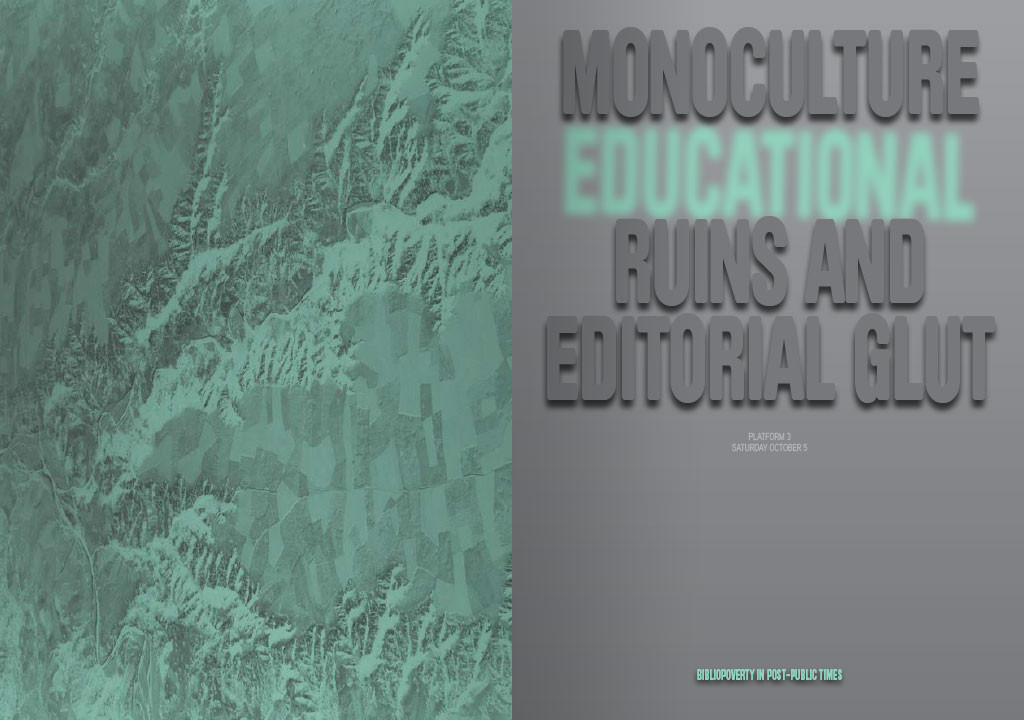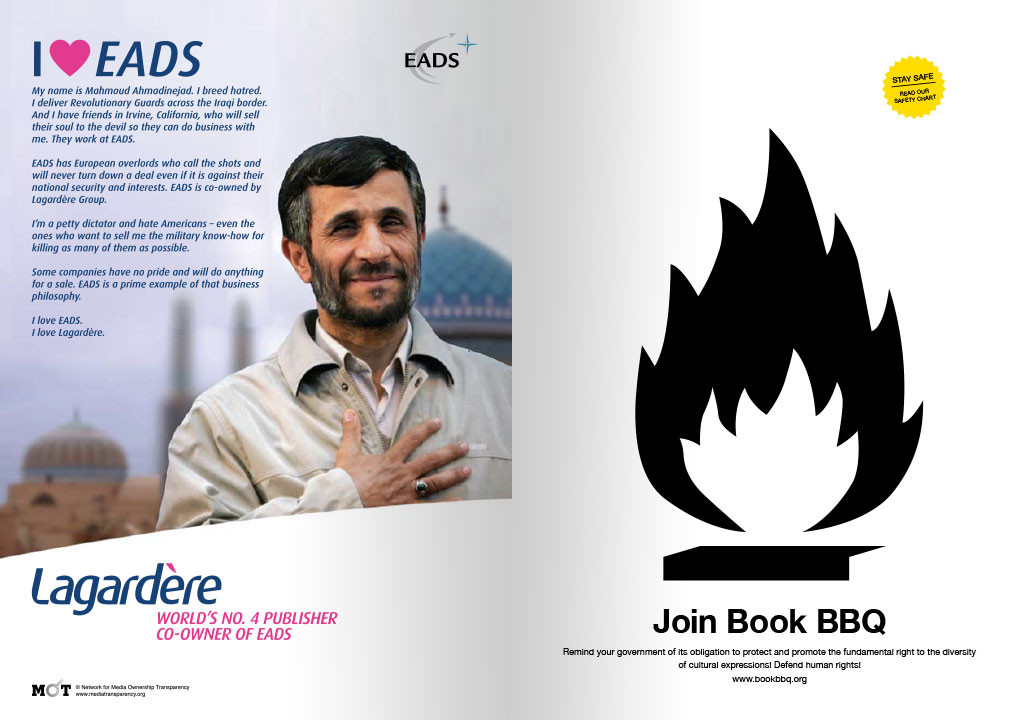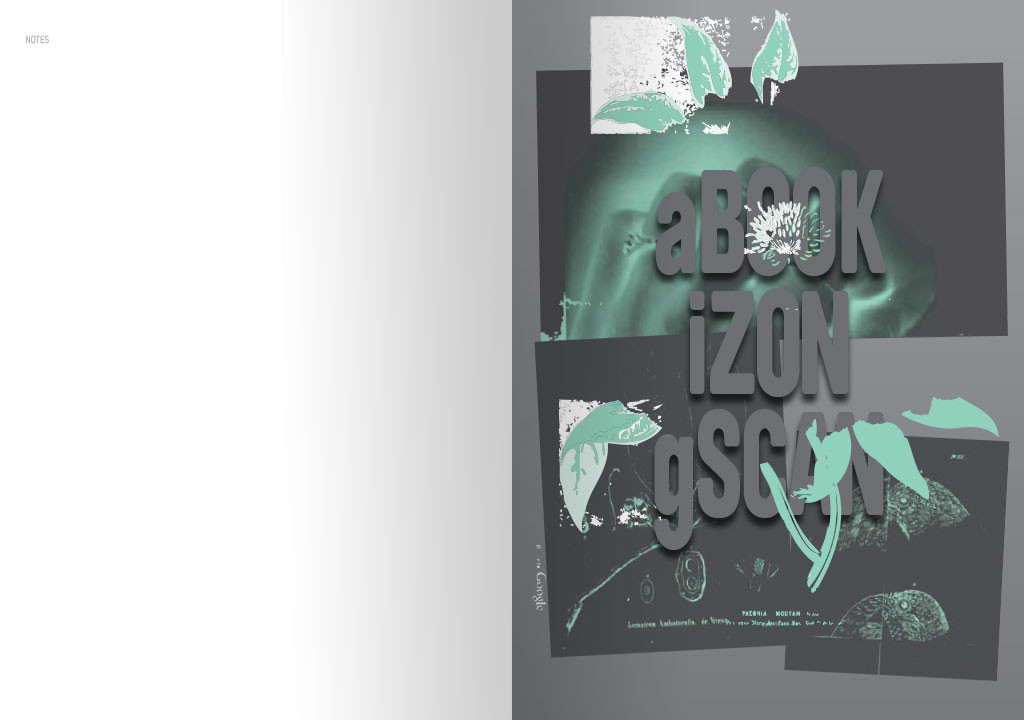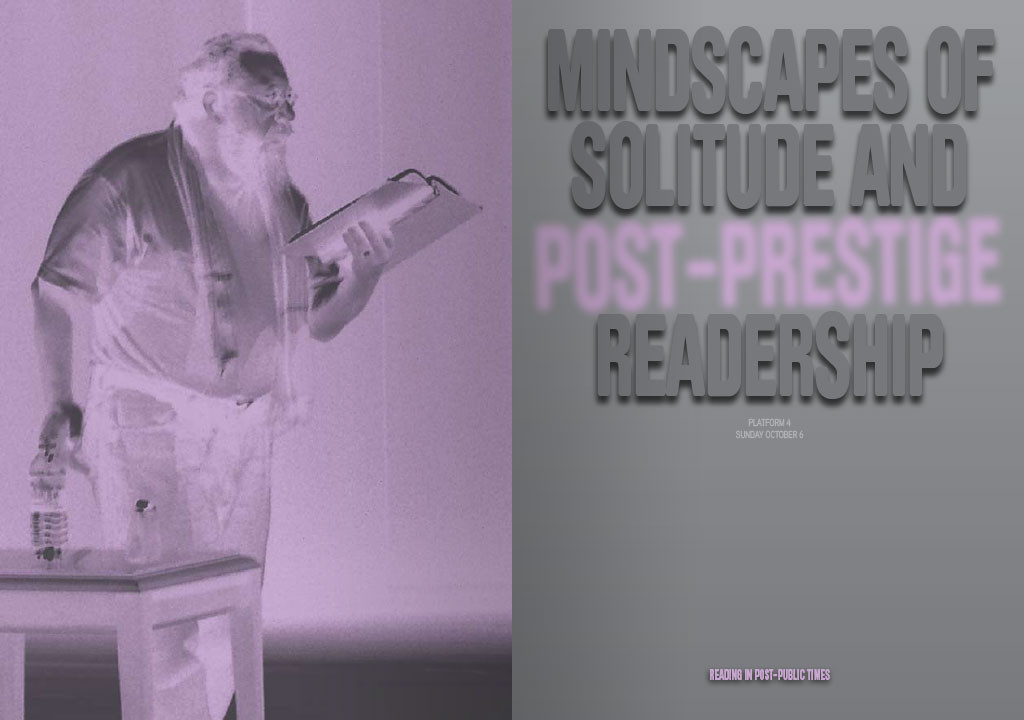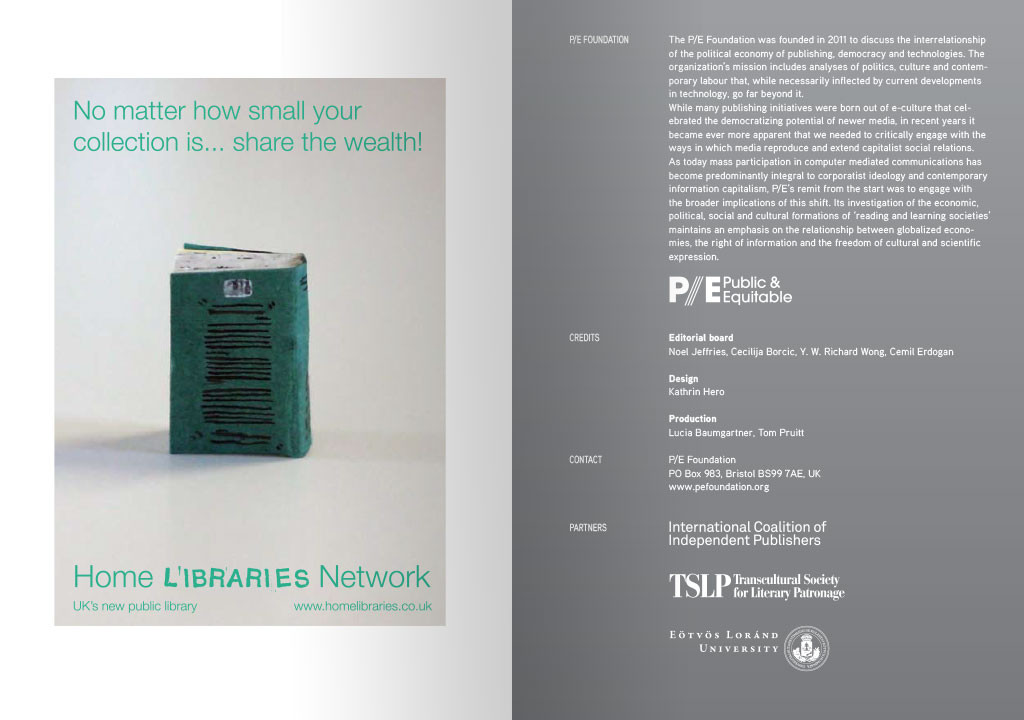The Post-Public Book Conference
3–6 October 2019, ELTE Convention Centre, Budapest.
The business of books has entered a post-public state.
Graduation project at the Utrecht Graduate School of Visual Art and Design (MaHKU, pathway Editorial Design).
The imaginary conference offers the audience a different range of debate about books than the current dominating one analysed in my research (2011). As such it serves as a critical comment on ongoing media debates in general. The conference framework proposes an angle to evaluate media change that moves away from a focus on technology towards the political economy of book publishing in the context of democracy and globalization. The presentation points out unexpected aspects of the publishing industry and unmasks today’s techno-utopian visions.
Programme book
Democracy and media policies
→ Transparency in media (cross-)ownership structures
→ Post-regulatory information politics
The economy of publishing
→ Market censorship and clandestine publishing
→ The rise and fall of professionalism
The cultural and educational book
→ Preventing future ruins or damage control?
→ Bibliodiversity
Readership: the personal and private book
→ Digital Diets
→ Reinventing the public book
Introduction
“The business of books has entered a post-public state. After decades of media consolidation and failing media policies, the political economy of publishing has become fatal to free literature. Blindfolded by revolutionary promises of techno-utopian marketing slogans and ever growing editorial glut many missed to see that democracy and the fundamental right for information and cultural expression has entered a state of crises on a global scale. Unrestrained corporate power has extinguished the revolutionary democratic potential of digital communication and censored the cultural and educational output of what once was a diversified independent publishing industry. “Any book you want” has come to mean “Any book we want”.
The last bits of independent general trade supply chains from the off-cloud world are crushed. Also, institutions are confronted with the ruins of the disruptive commercial mass digitization of their heritage archives and, with no public means at hand, have to build strategies to reformat their collections, structure and organization.
The conference invites its speakers and audience to consider new possibilities for resistance to hegemonies wherever they find them; from socio-economic and techno-social structures, to codes of representation and expression, to the production and articulation of mental and physical experience.
We also welcome critiques of the ongoing fetishization of cloud-computing and of information and communication technologies as either inherently progressive or entirely reactionary.
Finally, the organization hopes to stimulate approaches to independent and collaborative writing and publishing, post-prestige readership and freedom of information and bibliodiversity that challenge the orthodoxies of both the constituted left and ‘critical’ media culture.
The Post-Public Book, initiated and established by the P/E Foundation in collaboration with the Eötvös Loránd University of Budapest, is made possible with the generous support of the Transcultural Society for Literary Patronage (TSLP) and the International Coalition of Independent Publishers. We are grateful to these international institutions’ enduring commitment to human rights such as the right of information and the freedom of diversified cultural and scientific expression.
On behalf of the organisation,
Noel Jeffries, director P/E Foundation”
